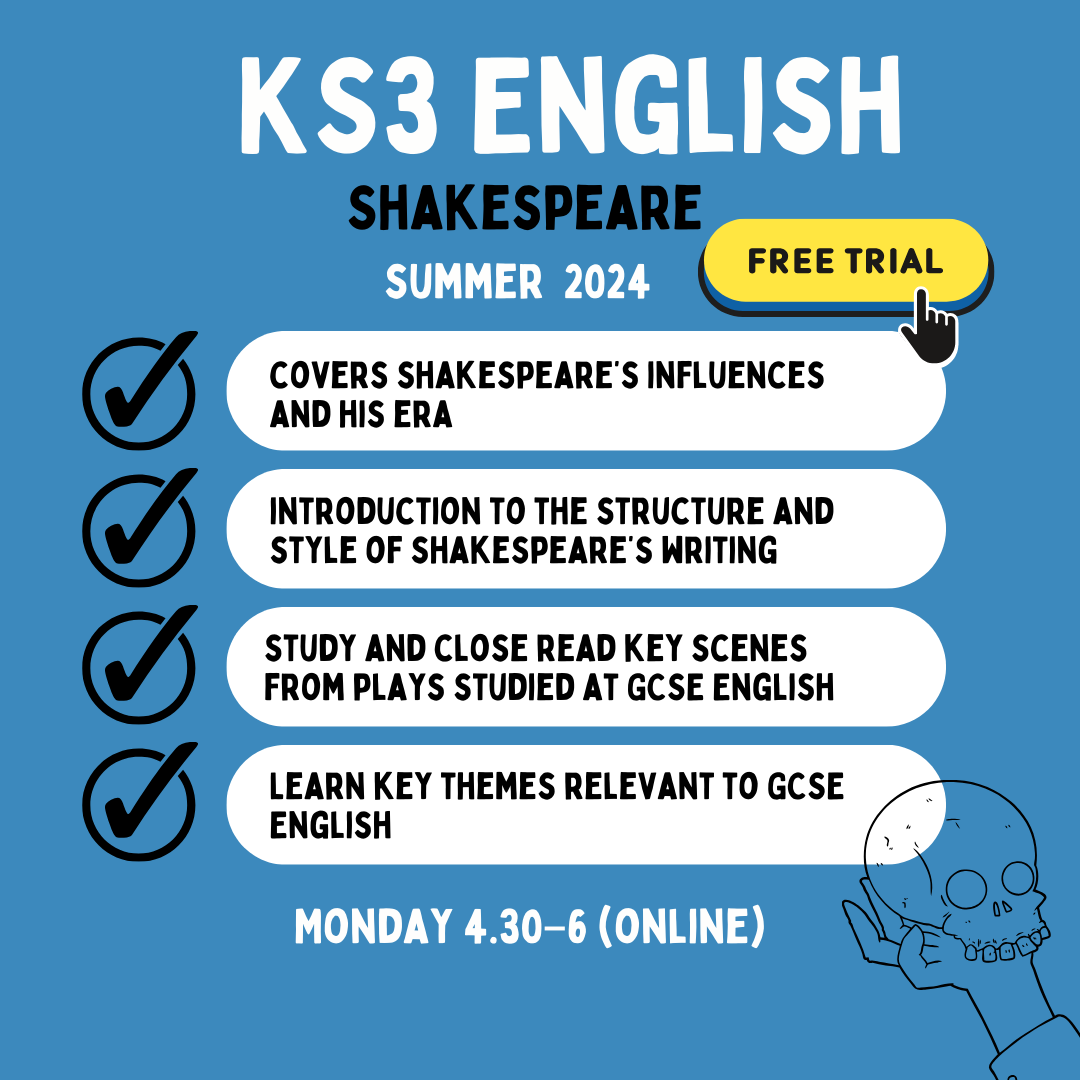Here are my top tips for studying a Shakespeare play.
They will help you to gain more a better understanding of Shakespeare and enjoy watching his plays.
These are my tried and tested methods which I use myself and with my students. I hope you find them helpful.
Let me know if you have any more tips in the comments.
1. Read a summary first before reading or even watching a play. The Shakespeare Stories series although targeted towards children is helpful for all ages.
I used to read these stories in the classroom when I was a secondary English teacher: before reading the original text with a class, we would read the retold story.
2. Read about the key themes and do a bit of background reading. Shakespeare for Grown Ups provides useful introductions for every play.
3. Watch a play or film adaptation before close reading the text. Remember Shakespeare’s plays were written to be performed!
However, many Shakespeare productions are utterly terrible, so it’s worth doing some research on the best ones.
The adaptation you choose can have a huge impact on your overall comprehension.
For example I recently started watching the new film adaptation of the Tempest starring Hellen Mirren, but for me it was just all noise and I couldn’t take in the words, so I gave up after about five minutes. Then I started watching this production by the RSC and immediately I was hooked and could really digest the words.
I think it’s mainly because the sound effects and background noise in the new film are too loud–a common problem with modern film adaptations.
Shakespeare requires attentive ears so for this reason stage productions are often better for improving understanding.
4. And this leads to my fourth tip, listen to a radio adaptation. Listening to the words alone may help to further illuminate key ideas and themes.
I particularly like these BBC productions which don’t drown out the dialogue with sound effects.
5. Buy the Arden edition of the play you’re reading. Before A Level, schools typically provide students with editions containing a much sparser level of translation and illumination into Shakespeare’s language. This makes your life harder because you can’t just infer or intuit the meaning of this word or that line.
Certain words had totally different meanings in Shakespeare’s era, and it’s impossible to fully understand the plays without careful, methodical translation. The Arden editions provide all the translation you need. And it’s worth noting Shakespeare is hard. I think sometimes teachers give the impression that you can just get Shakespeare if you really pay attention and use your powers of inference, but that’s rubbish.
Shakespeare is brilliant, but it’s delayed gratification: it’s a lot of page turning and referring back to the footnotes or dictionary.
It will literally take a minute to get the joke. You're not stupid if the words aren’t intuitively obvious to you.
You just have to read slowly and carefully and take the time to explore what is confusing or doesn’t make sense.
But take your time and you will get Shakespeare!
Would you like to study Shakespeare with me?
This term, I’ll be delivering a course for KS3 students on Shakespeare. Classes start next week. Details below
Ultimately, the aim is to provide students with a good foundation for studying Shakespeare at school. We’ll cover what is most useful for success in GCSE English.
Simply reply to this email to learn more and trial the first session next week.
Best,
Morgan





